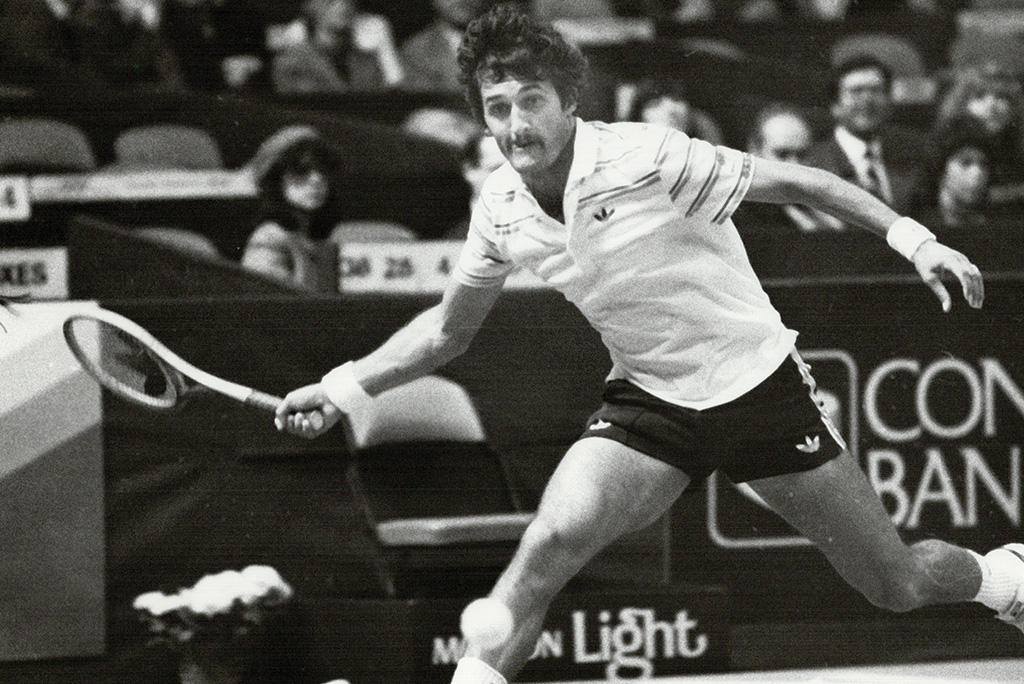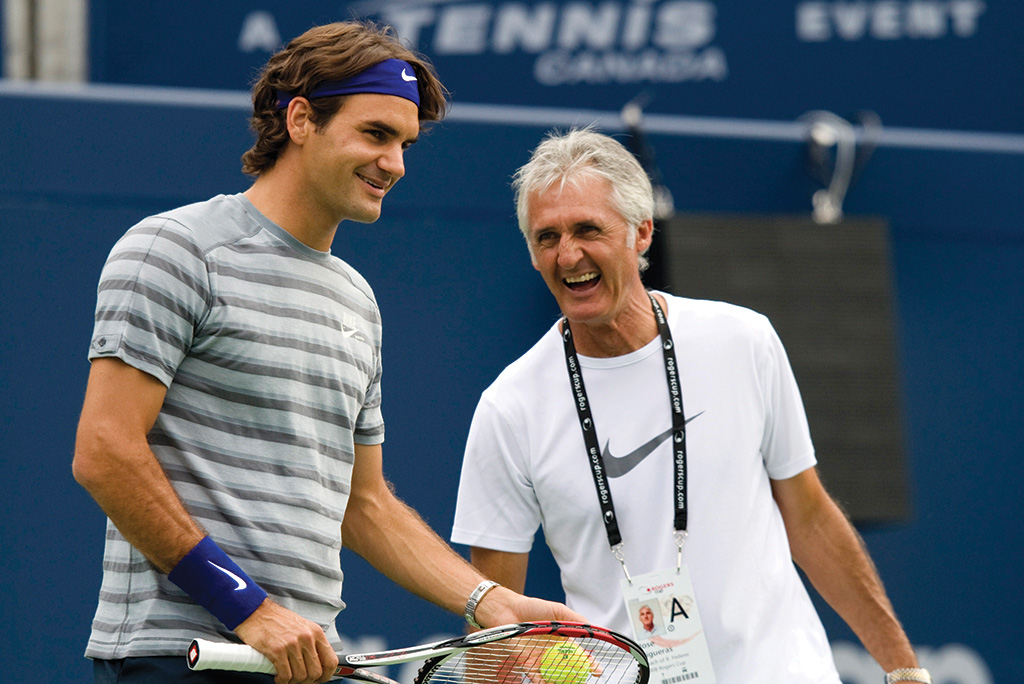Tennis players often talk about whether they prefer playing on “dirt” (a reference to clay court tennis) or “grass” (a reference to playing on the faster court service they compete on at Wimbledon). For José Higueras, considered by many to be one of the brightest minds in the game of tennis, these terms have even more meaning.
I caught up with José as he pulled his dusty pickup truck onto the road that leads to his horse stables in rural Bellevue. One of his three horses is sick, and he has made the drive from Ketchum, where he and his wife, Donna, have recently made their permanent residence, to come assess the situation.
Although he is well known for helping people with their tennis games, his real passion lies elsewhere. “I have always loved animals,” says Higueras. “I was born on a ranch in southern Spain. I moved out of the country when I was six or seven, but that life was always ingrained in me. I didn’t do much with horses when I was playing—obviously! As soon as I retired in 1986, I got a couple of horses, and, since then, life has been good!”
For an outsider, it sounds almost unimaginable that someone with a passport as battered as Higueras’ would choose a remote destination in Idaho to call home after traveling the globe and seeing all that is out there. After all, between his time spent playing and the years he served as a coach, Higueras has seen just about every part of the world while traveling to the Grand Slams, Davis Cup competitions and everywhere in between.

Higueras, here in 1984, was known as the gentleman of tennis. Today, he has enjoyed getting to know the tennis community in the Wood River Valley.
During his illustrious coaching career, Higueras worked with such names as Michael Chang, Jim Courier, Todd Martin, Guillermo Coria, Pete Sampras and, most recently, Roger Federer. Prior to being considered one of the best minds in tennis, he was an accomplished player himself, reaching a top 10 world ranking and making it to two French Open semifinals before retiring at the age of 33.
For Higueras, there is no question which he would choose if he had to decide between coaching or playing at the highest level. “Nothing beats playing, from my perspective. You never get close to the high of when you play in front of thousands of people like a grand slam,” he says.
Now, as he tends to his horses (he also has two Australian shepherds, with plans to have chickens very soon), those days seem far away. In fact, if the Davis Cup were to be held tomorrow in the Sun Valley area, all of the residents combined would struggle to fill up the iconic Wimbledon stadium that Higueras used to regularly compete in. And that is just how he likes it. Nowadays, he no longer has to calculate how the moisture of the dirt will impact a return of serve from Boris Becker on a big point. And, the only grass he needs to concern himself with is whatever his horses are grazing on.
Talking with Higueras, it is clear he loves the simplicity that life on a farm provides and laments the complexities that players and coaches have to navigate these days.
“I think it was easier to coach before because there were less distractions. I like tech, to a certain point, but I think it has had more of a negative than positive impact for young kids,” says Higueras. “You don’t only teach them how to play a sport but how to live their life. Discipline and respect are so important.”
Still, Higueras admits that some advancements in the game are not all bad, and he does appreciate how players have been able to extend their careers and stay competitive at a much more advanced age than before. “Things are better now. Before I played Davis Cup, we had a steak, French fries and dessert. Until later in my career, I didn’t even know what stretching was!,” says Higueras.
Although it was hard for him to get his ranch “fix” on the road, Higueras always found ways to stay in touch with his roots, although he admits that sometimes things got complicated. “For the Orange Bowl, we went to Costa Rica,” says Higueras. “We went to a farm and saw some horses while we were there. When [Bjorn] Borg got on one of the horses, he fell off and broke his wrist. They put a cast on his arm and then he played the tournament anyway—called the “Coffee Cup”—and was in the quarterfinals before he finally retired because people convinced him that he shouldn’t be playing because of his arm!”
The story of Borg is a reminder of how much things have changed. For today’s elite athletes, life experiences have to take a backseat as agents and coaches are highly protective of their players’ wellbeing. As for Higueras, he seems to have found exactly which surface he belongs on for the long term. “I like the dirt, and I like the animals!” he says emphatically. Here in Idaho, Higueras will have plenty of both to keep him busy for as long as he wants.
Captions
Spain’s José Higueras was known as the gentleman of tennis back
in 1984. Today, Higueras has enjoyed getting to know the tennis community in the Wood River Valley.
José Higueras (right) coaching
Roger Federer in 2008


